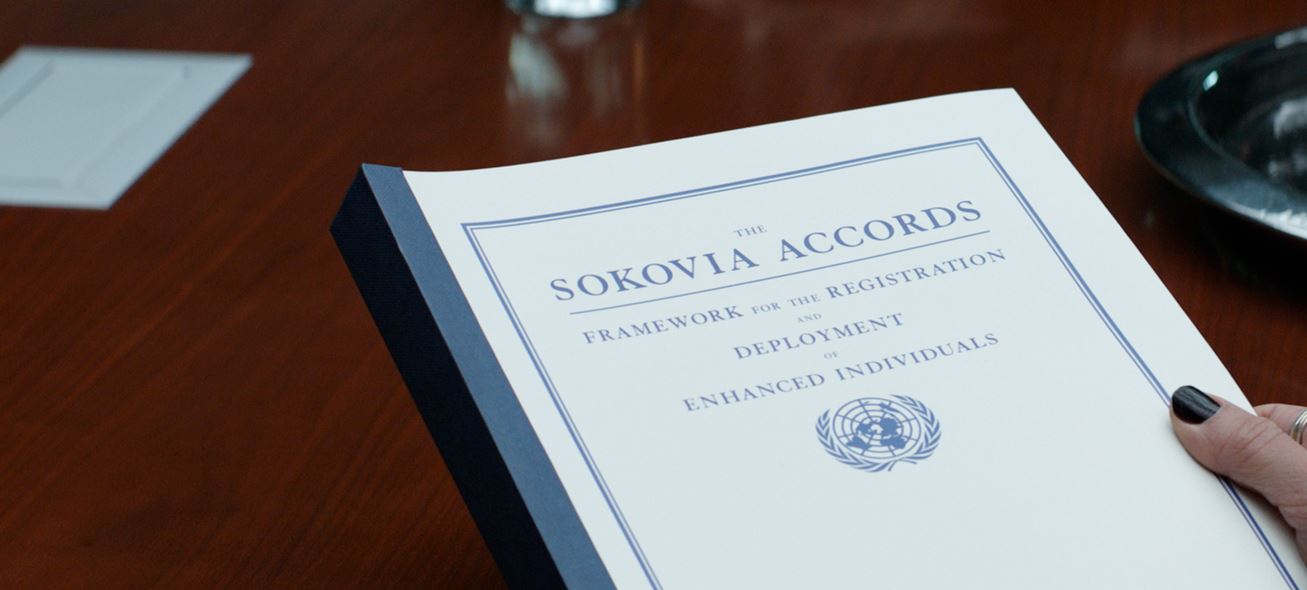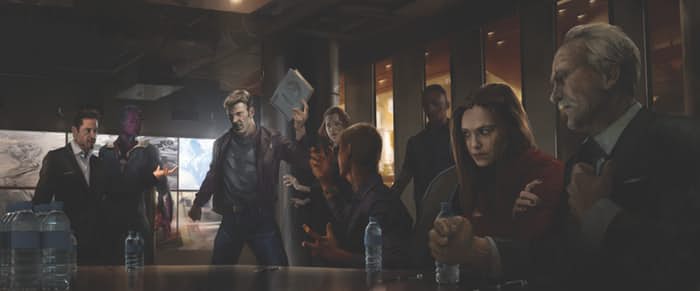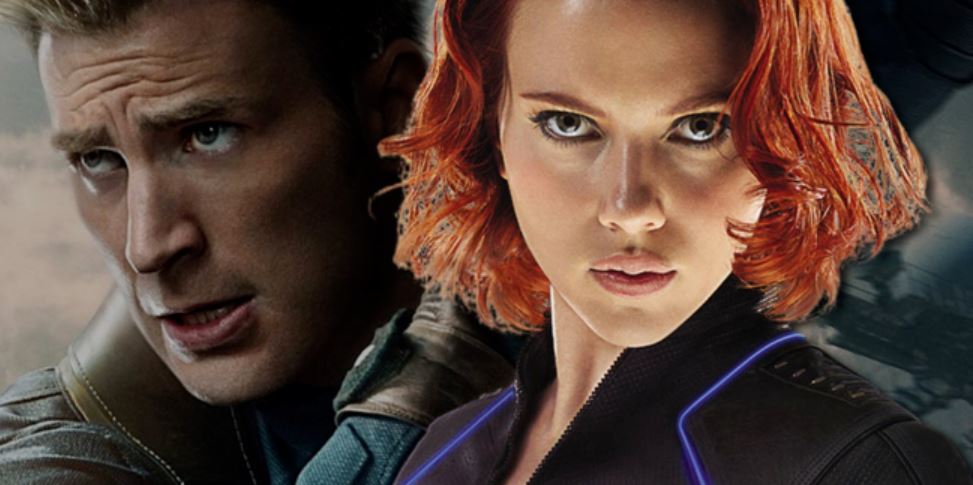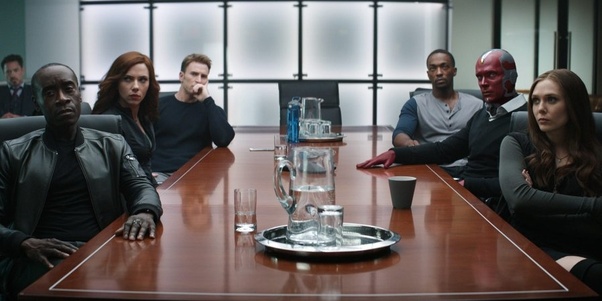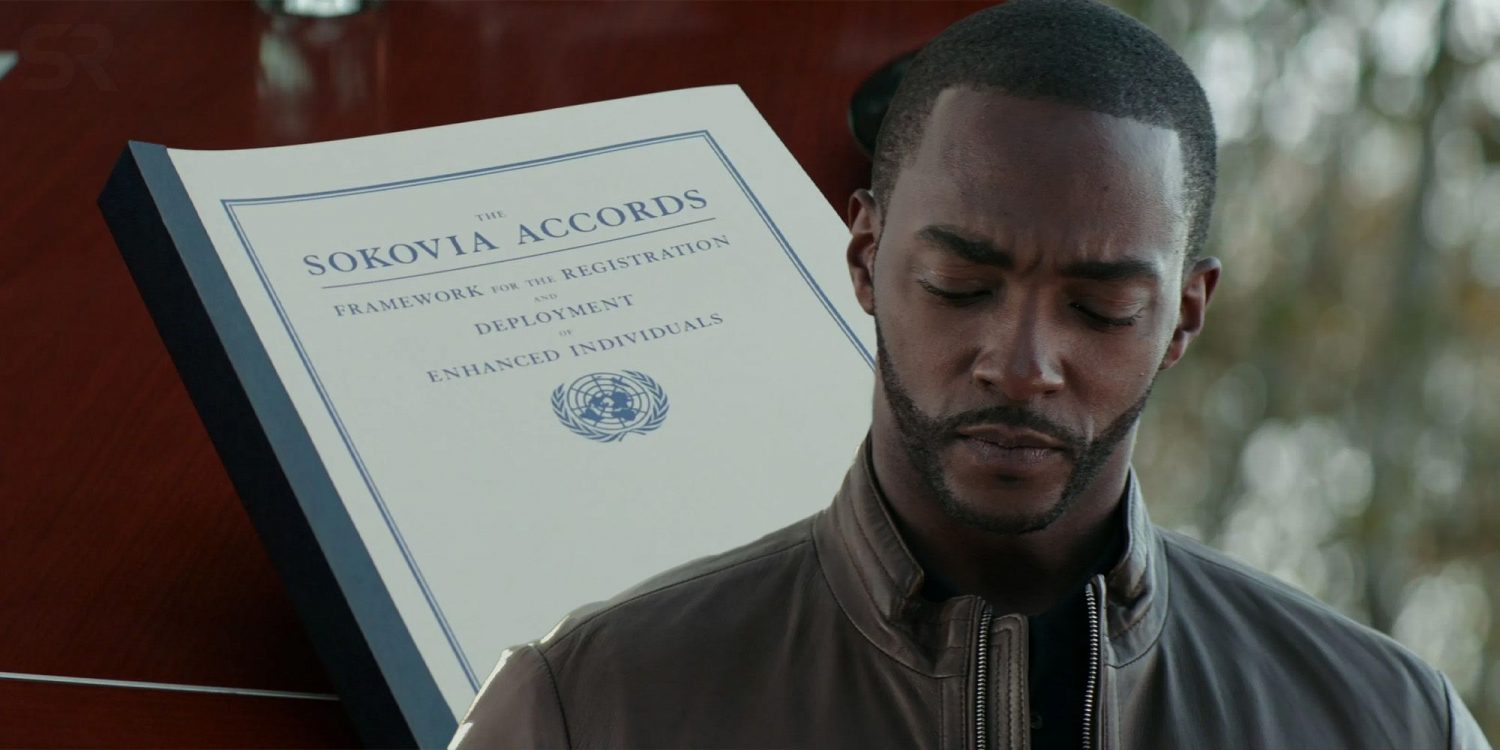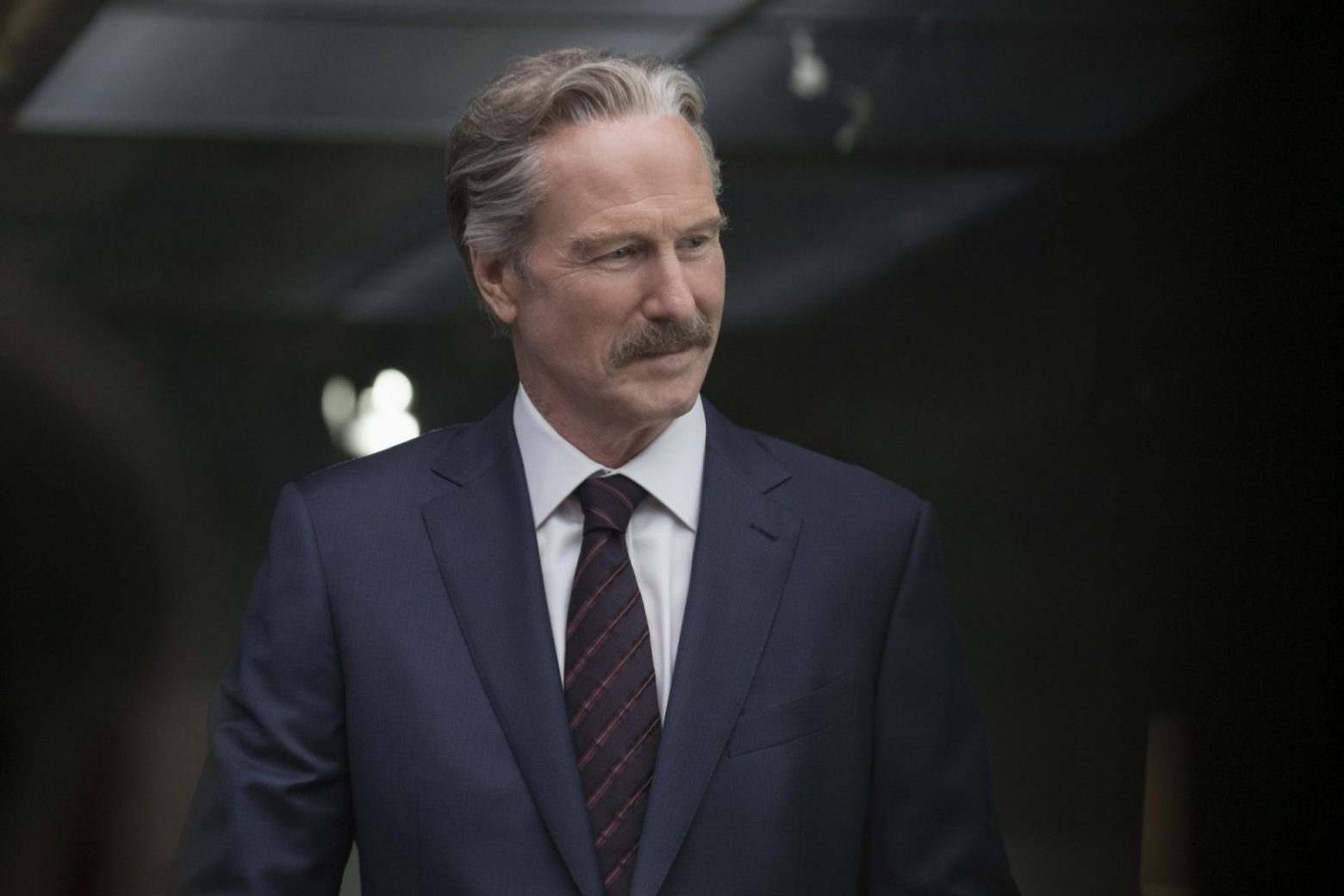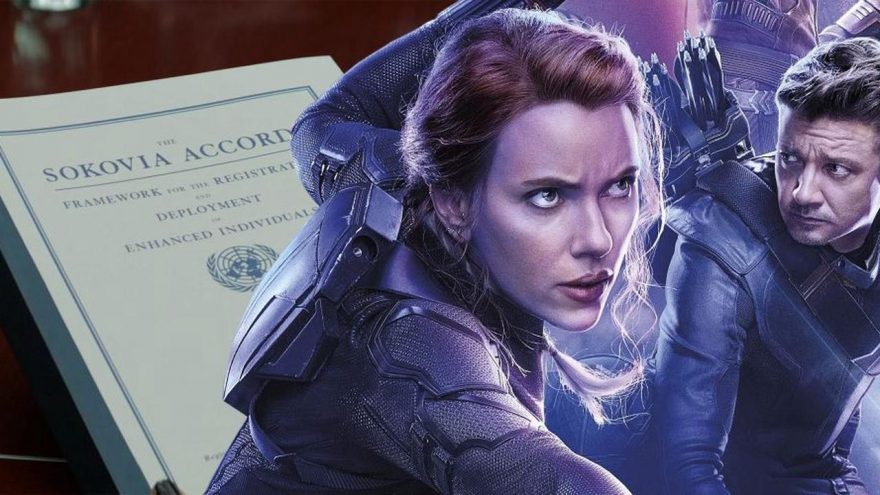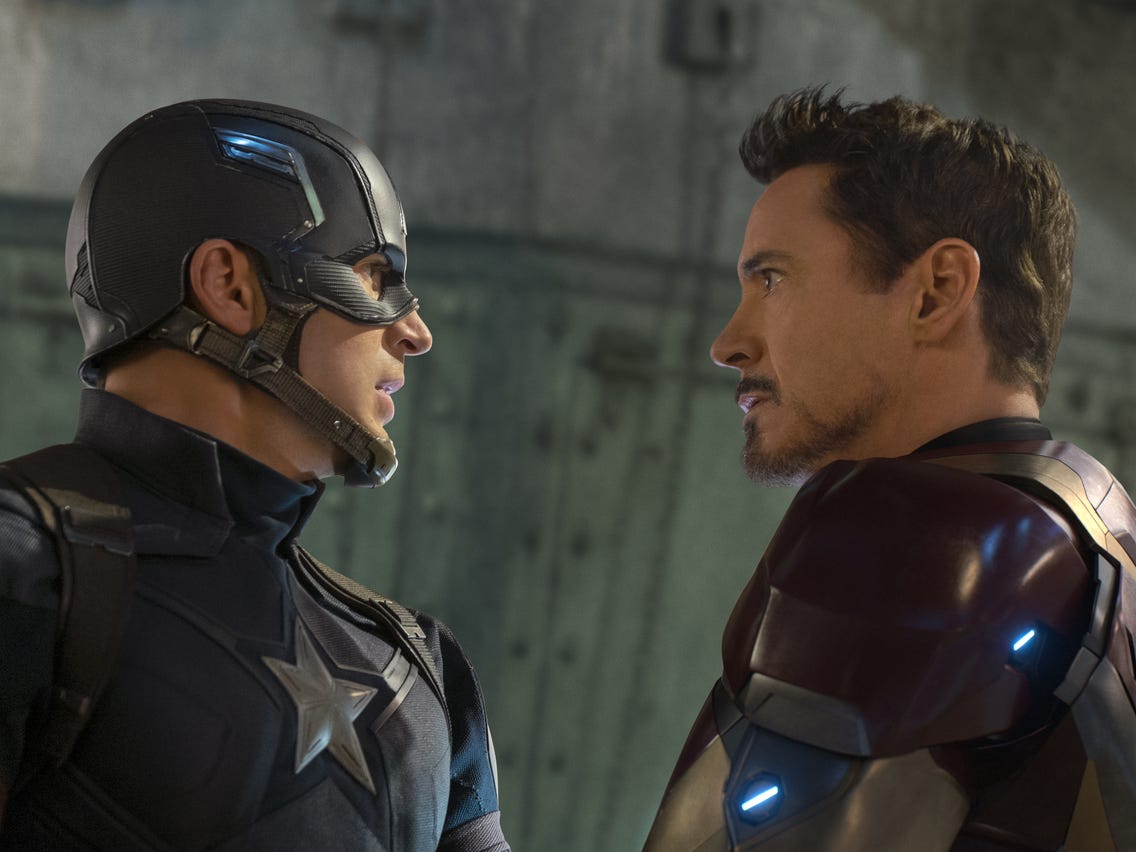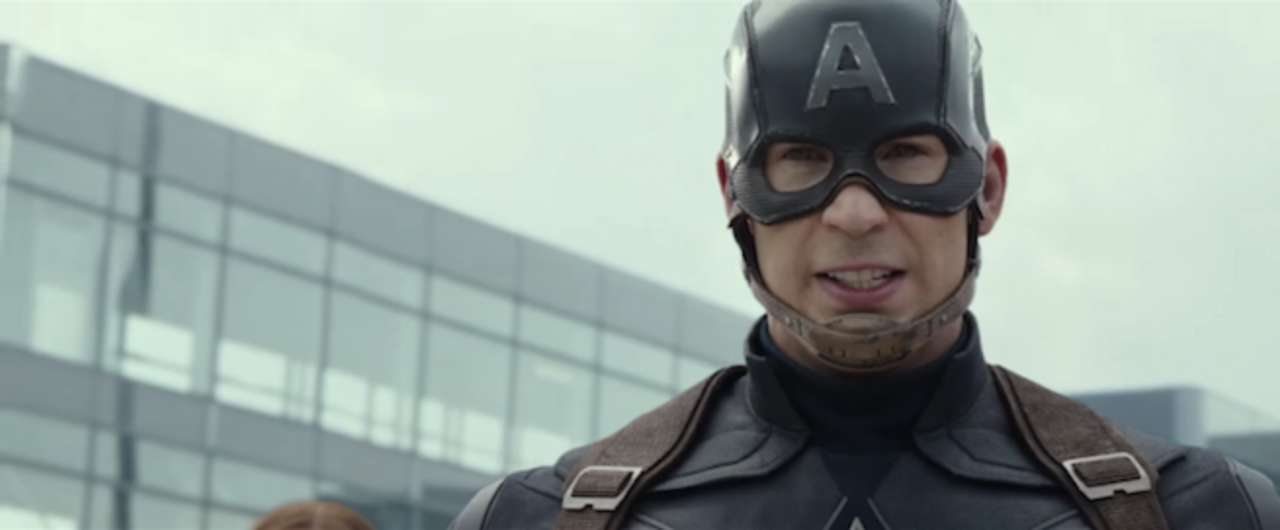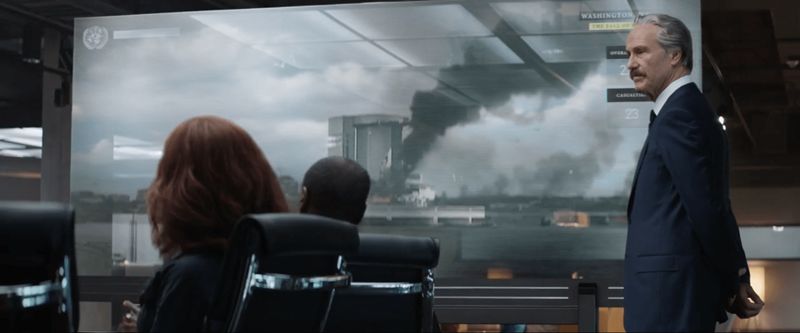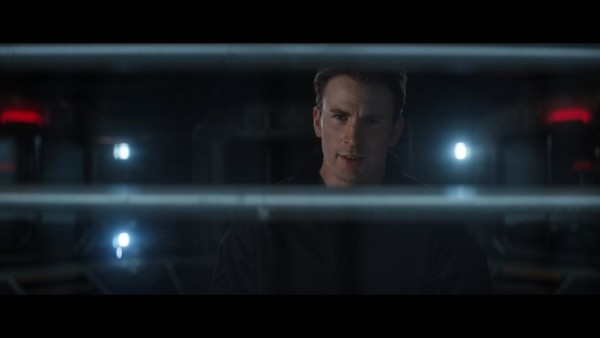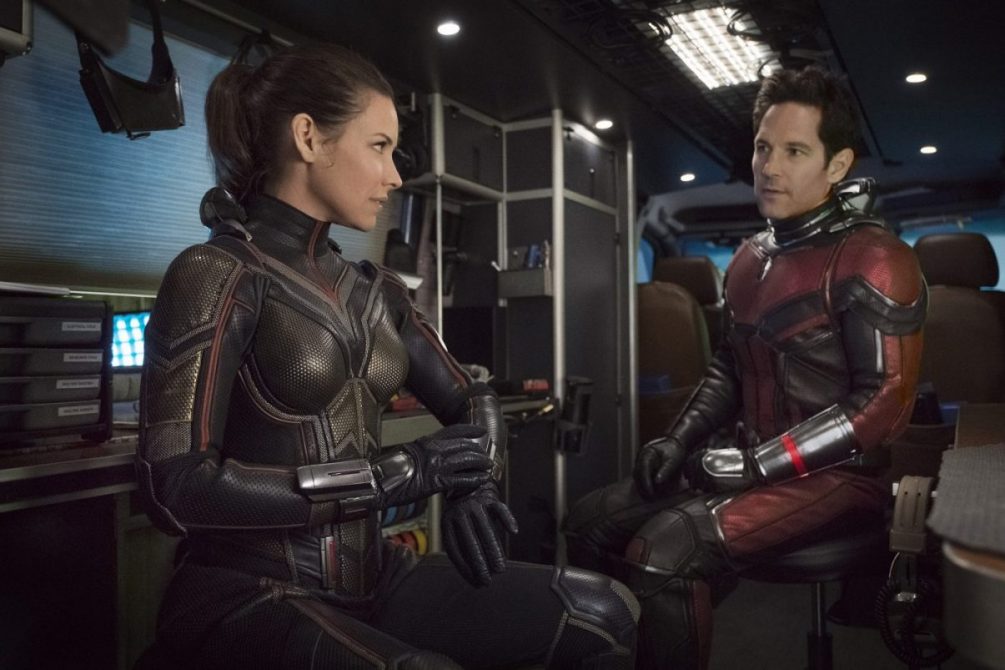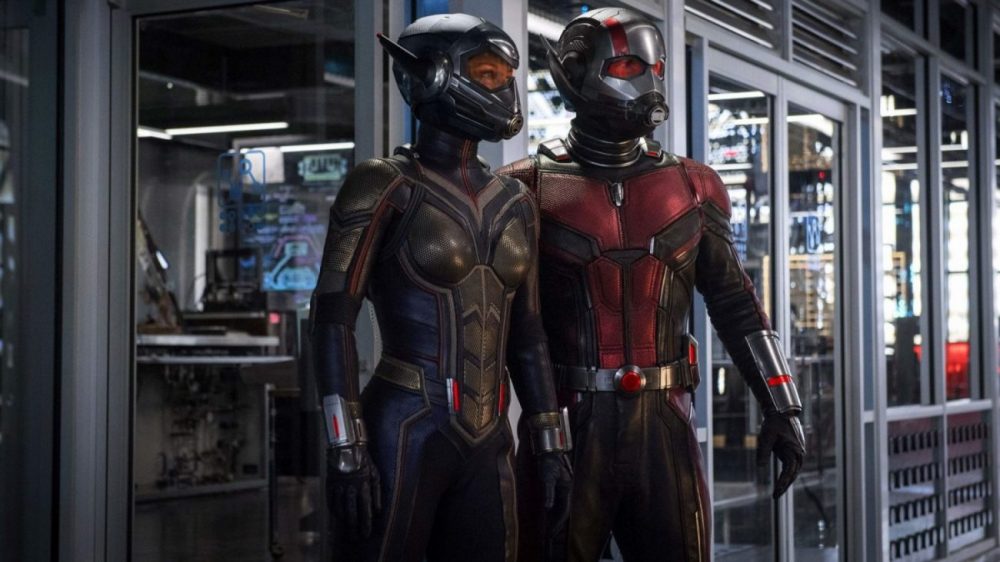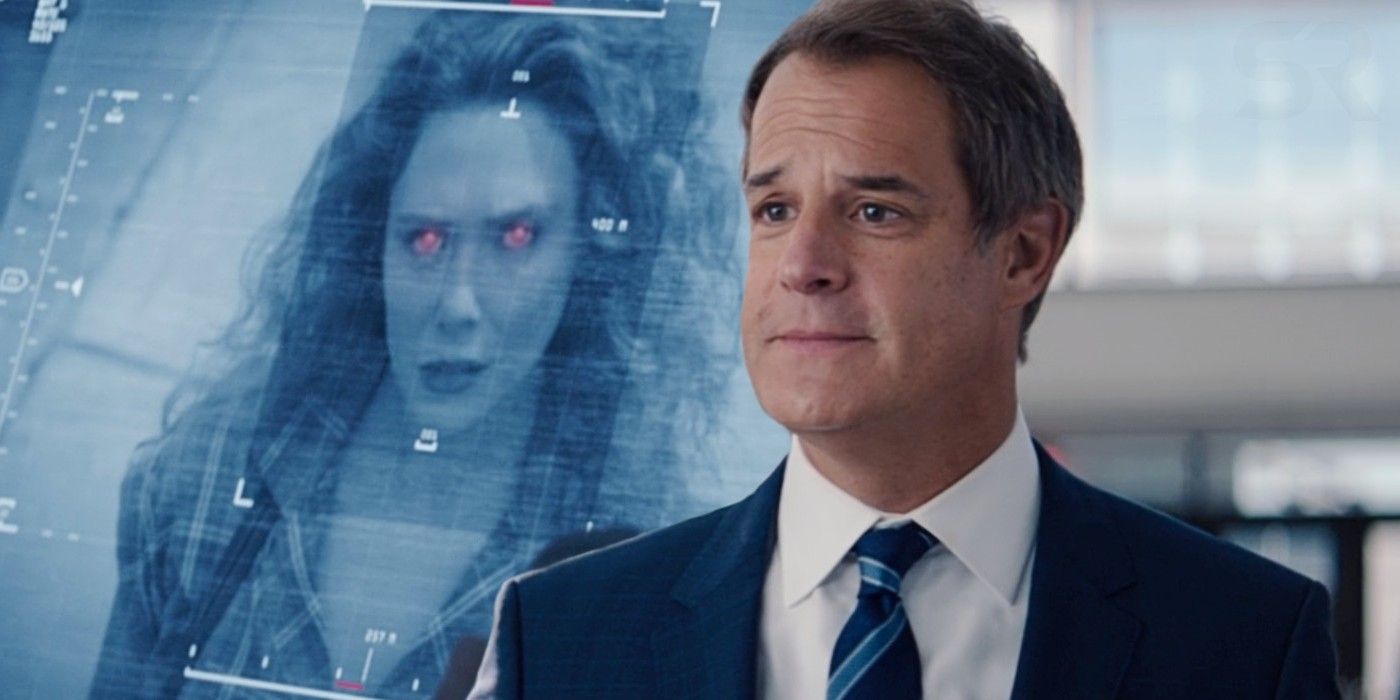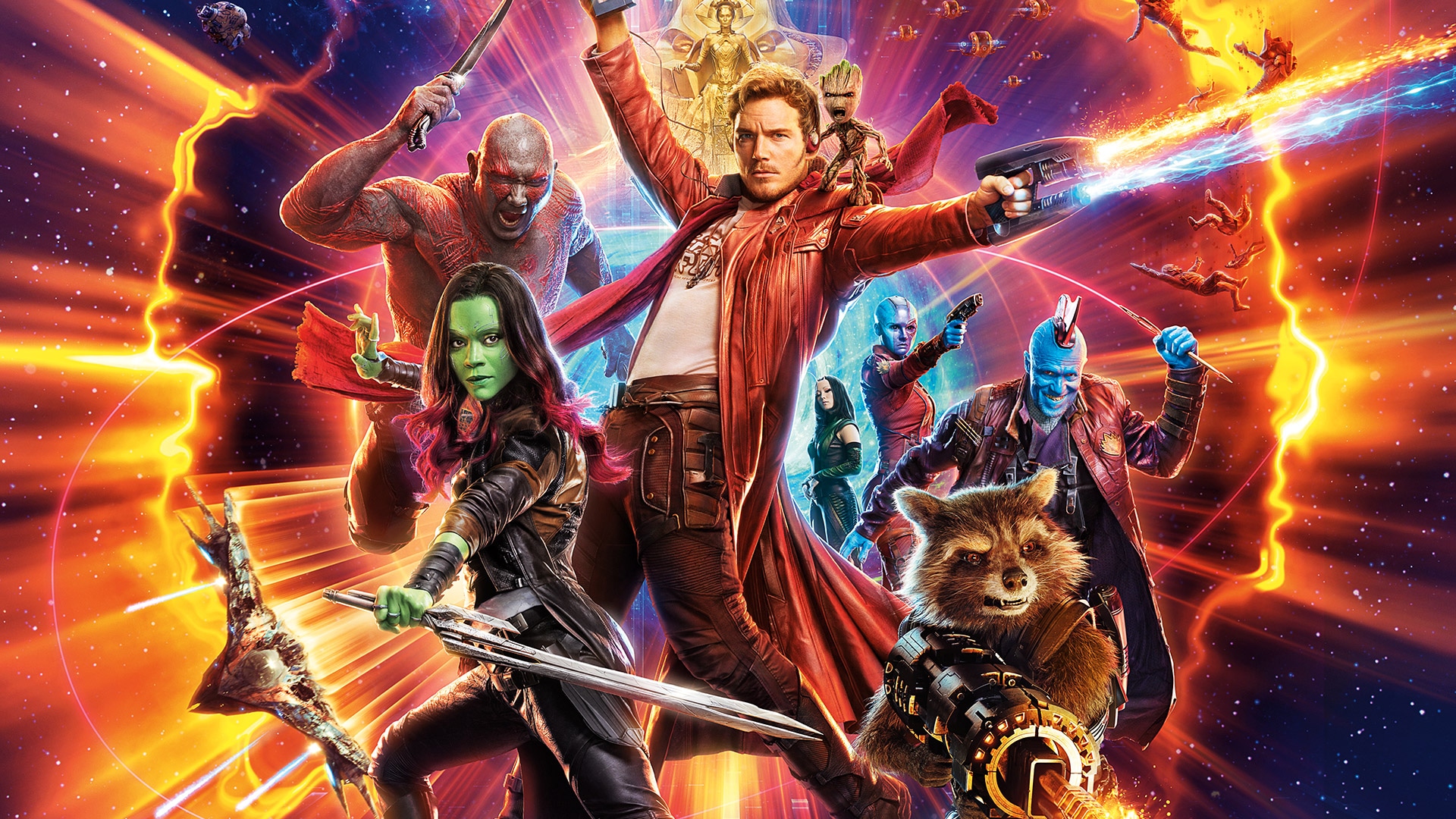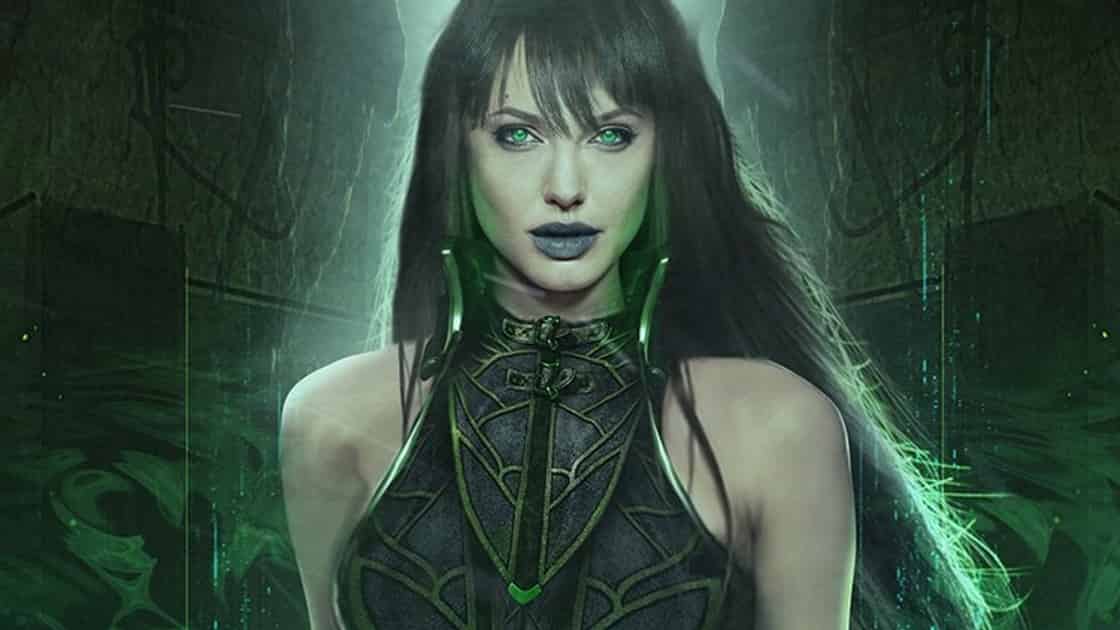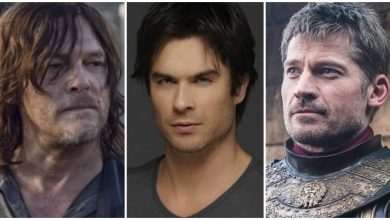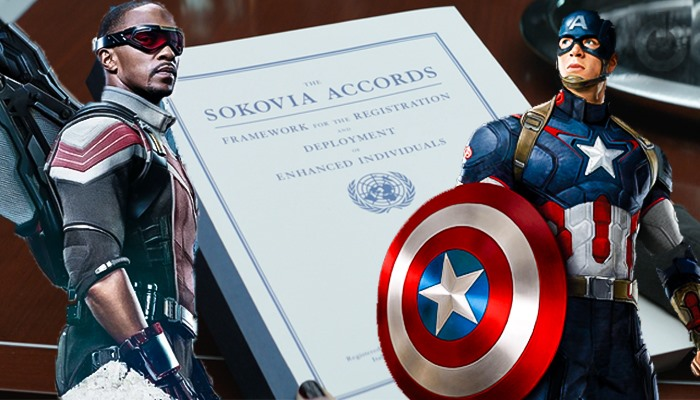
Looks like the Sokovia Accords had a big impact on the Marvel Cinematic Universe. The superheroes had to compulsorily follow the rules and restrictions of the Accords. These Accords were introduced in Captain America: Civil War in 2016. They are MCU’s version of the Superhero Registration Act introduced in Marvel Comics’ Civil War storyline.
Till now, Sokovia Accords have remained the law of the land in MCU. This also includes the farthest point in the timeline seen by fans till now like WandaVision, The Falcon and the Winter Soldier, and Spider-Man: Far from Home. The push for the drafting of The Sokovia Accords: Framework for Registration and Deployment of Enhanced Individuals was a mission of the Avengers in Lagos, Nigeria that went wrong in 2016.
As we saw in Captain America: Civil War, Wanda Maximoff used her powers for preventing Brock Rumlow commit suicide and kill others by detonating an explosive device in a public market. Wanda underestimated her magic and Rumlow exploded near a building that killed 26 people. This included 11 Wakandan relief workers. After this, Secretary of State Thaddeus Ross presented the Sokovia Accords to the Avengers.
Approved by 117 countries which included the United States, Germany, and Wakanda, it was designed to offer accountability for all superheroes. This included special emphasis on Avengers and their activities. Most of the Avengers, including Tony Stark, understood the importance of the Sokovia Accords and agreed to sign. But the one who was against it was Steve Rogers a.k.a. Captain America. Helmut Zemo took advantage of this rift between the Avengers for breaking them apart.
Towards the end of Captain America: Civil War, three members of the Avengers along with Scott Lang a.k.a. Ant-Man were considered violators of the Sokovia Accords. They were imprisoned in the supermax prison, The Raft. They were freed by Steve Rogers. Scott Lang and Clint Barton decided to remain on house arrest after returning to the United States. The other members of the Avengers group spent the next two years as international fugitives.
After Thanos was killed by the Avengers and billions of people were resurrected, the Sokovia Accords still remained in place to continue superhuman accountability. There are non-enhanced individuals like Sharon Carter who are still fugitives and declared enemies of the state according to the events of The Falcon and the Winter Soldier. Sokovia Accords is a big and complex document. It has various bylaws and protocols.
It also has an authoritarian bent which alarmed Steve Rogers. But MCU learned to live with Sokovia Accords, for better or worse. Here are the known primary laws of Sokovia Accords that apply to the Avengers and other superheroes in the MCU:
1. Signing the Sokovia Accords is necessary for all MCU Superheroes
According to Sokovia Accords, an enhanced individual, including the ones who have biological powers or stem from technology along with people like Natasha Romanoff, the Black Widow, and Clint Barton, who have no superpowers but are Avengers, have to register with United Nations and give biometric data and DNA samples.
Also, the ones with secret identities have to unveil their actual names to the UN. This does not mean that the identities of the superheroes are made public. But their real names are put in a global database so that they are recognized by the authorities.
2. Refusing to sign Sokovia Accords means retirement or criminal prosecution
Thaddeus Ross clearly said that signing Sokovia Accords is important for the Avengers or they have to retire. Anyone who refuses to sign Sokovia Accords and chooses to continue the non-sanctioned activities is subject to criminal prosecution and detention without trial. That’s why, when he refused to sign the Accords, Steve Rogers was pursued by international authorities.
His disobedience of the law was compounded by his help to Bucky Barnes. Bucky Barnes was thought to be the Hydra assassin called the Winter Soldier. The ones who helped Steve Rogers and Bucky Barnes in Captain America: Civil War was also considered as the violators of the Accords. But they turned and sided with Steve Rogers.
3. Avengers no longer a private organization and subject to Government insight
Making the Avengers responsible was the main reason behind the drafting of the Sokovia Accords. With the destruction of Sokovia and the incident in Lagos, the battle with Chitauri in New York City and Hydra in Washington D.C., a growing tide against the Avengers was increasing internationally. Sokovia Accords ended the run of Avengers as a private organization. It made Avengers globally accountable to the United Nations and the local governments they operate in. This is initially the United States since most of the Avengers are citizens of U.S.
4. Superheroes not allowed to operate outside of their own country without UN approval
The ability of Avengers to enter any country was ended because of Sokovia Accords. After signing, they are no more allowed to take action in any country other than their own without the consent of UN panel, if and only if they consider it necessary. Clearance can be granted by another nation’s government.
Also, governments are not allowed to deploy enhanced individuals in other countries without that country’s approval. This is why while on a mission in North Africa in the premiere episode of The Falcon and the Winter Soldier, Sam Wilson was not allowed to enter the Libyan airspace. This could violate the Sokovia Accords.
5. Use of superpowers to break the law and engage in vigilante activity means indefinite detention without trial
Anyone who refuses to sign the Sokovia Accords and continue the non-sanctioned activities is subject to criminal prosecution and indefinite detention without trial. The purpose of this is to end the costumed and superpowered vigilantes in MCU. Also, if an enhanced individual uses his or her powers to break the law, it will be considered a threat to the safety of the general public. They can be detained without any trial. The elimination of the rights of due process is a very harsh and controversial aspect of the Sokovia Accords.
6. Technology use for granting superpowers will be regulated
The protocol of the regulation of advanced technologies is for human-designed tech like Stark’s Iron Man suits. It also includes alien technologies like the Asgardians tech and the Chitauri weapons. This is the reason why, in Ant-Man and the Wasp, Hank Pym and Hope Van Dyne were on the run. Hank did not agree to register his technology with Sokovia Accords.
This made the activities of Scott Lang more illegal because he broke his own house arrest. He used banned Ant-Man tech in the film. It is unknown if after Avengers: Endgame, Hank Pym and Hope Van Dyne signed the Sokovia Accords. The suspense will be revealed in Ant-Man and the Wasp: Quantumania.
7. Section 36B : Making self-aware artificial intelligence is strictly prohibited
WandaVision introduced us to Section 36B of Sokovia Accords. It deals with the making of self-aware artificial intelligence. S.W.O.R.D. Acting Director Tyler Hayward accused Wanda Maximoff of stealing the corpse of Vision. She illegally reactivated him. It turned out that he was just framing her and S.W.O.R.D. still possessed and brought Vision back online as the White Vision.
The ban on self-aware artificial intelligence stems from the creation of Ultron by Tony Stark. It led to the destruction of Sokovia and resulted in Sokovia Accords. It is a namesake protocol made to prevent MCU history from repeating itself.
